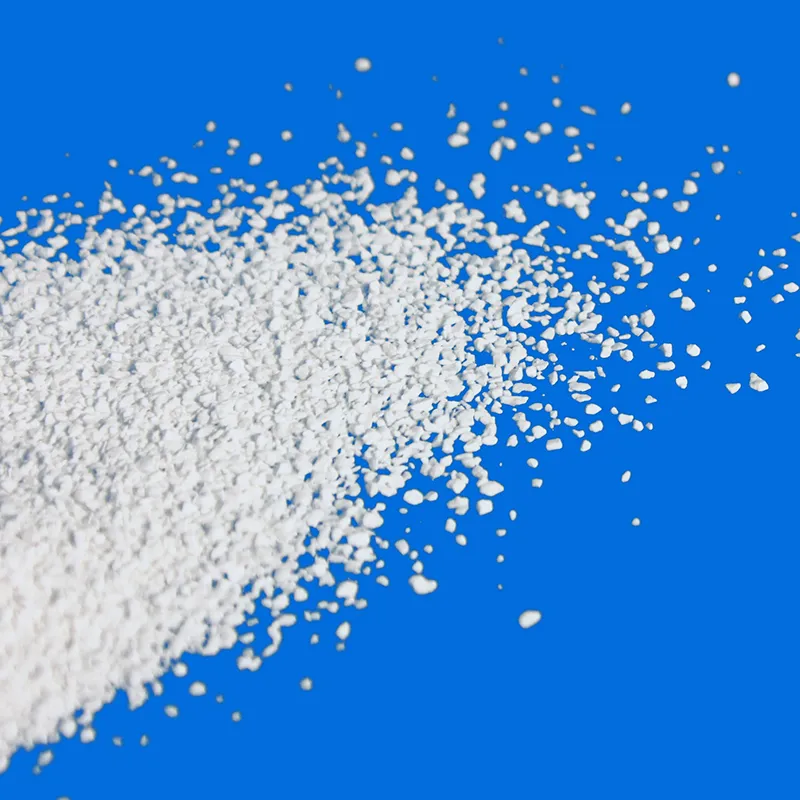
Exploring the Properties and Uses of Phosphoric Acid in Various Industries
Understanding Phosphoric Acid Properties, Uses, and Applications
Phosphoric acid, with the chemical formula H₃PO₄, is a crucial inorganic acid that plays a significant role in a variety of industrial, agricultural, and food processing applications. It's a colorless, odorless liquid that has a syrupy consistency and a sour taste. As one of the most versatile chemical compounds, phosphoric acid is integral to several sectors, including fertilizers, food and beverages, and pharmaceuticals.
Properties of Phosphoric Acid
Phosphoric acid is a triprotic acid, which means it can donate three protons (H⁺ ions) when dissolved in water. This characteristic makes it a weak acid in comparison to stronger acids like sulfuric acid or hydrochloric acid. When it dissociates in solution, it releases protons in three stages, producing dihydrogen phosphate (H₂PO₄⁻), hydrogen phosphate (HPO₄²⁻), and phosphate (PO₄³⁻) ions. Its pH levels vary based on concentration; concentrated phosphoric acid has a pH of around 1, while dilute solutions will have higher pH levels.
In its pure form, phosphoric acid has a high affinity for moisture and can form a viscous solution. It is hygroscopic, meaning it can absorb water from the atmosphere, affecting its handling and storage. Moreover, phosphoric acid is relatively stable and does not decompose easily, making it suitable for various industrial processes.
Production of Phosphoric Acid
Phosphoric acid is primarily produced through two processes the wet process and the thermal process. The wet process involves reacting sulfuric acid with phosphate rock, resulting in a solution that contains phosphoric acid along with other by-products such as calcium sulfate. The thermal process, on the other hand, involves burning phosphorus in the presence of oxygen and then reacting the resulting phosphorus pentoxide (P₂O₅) with water to produce phosphoric acid. The choice of method depends on the intended application and desired purity level of the final product.
Applications in Agriculture
One of the most significant applications of phosphoric acid is in the agricultural sector, particularly in the production of fertilizers. Phosphates are essential nutrients for plant growth, playing a pivotal role in energy transfer, photosynthesis, and nutrient transport within the plant. Phosphoric acid is used to produce various phosphate fertilizers, including monoammonium phosphate (MAP) and diammonium phosphate (DAP). These fertilizers are key to enhancing crop yields and ensuring food security in a growing global population.
phosphoric acid

Role in Food and Beverages
Phosphoric acid is widely used in the food and beverage industry, primarily as an acidulant in soft drinks, particularly colas. It provides a tangy flavor and helps maintain the acidic pH necessary for preserving these products. Additionally, phosphoric acid can enhance the stability and shelf life of food items. Beyond cola beverages, it is also used in cheese production and as a leavening agent in baking. However, its use in food products has raised health concerns due to its potential impact on bone health and phosphate levels in the body.
Pharmaceutical Uses
In the pharmaceutical industry, phosphoric acid is employed in the formulation of various medications, including antacids. Its ability to neutralize stomach acid makes it valuable in treating conditions such as heartburn and indigestion. Furthermore, phosphoric acid is involved in the production of phosphate salts used in intravenous fluids and certain drugs, highlighting its importance in medical applications.
Environmental Considerations
Despite its wide-ranging applications, the use of phosphoric acid can have environmental implications. The production of phosphates can lead to environmental degradation if not managed sustainably. Excessive application of phosphate fertilizers can result in nutrient runoff into water bodies, contributing to eutrophication—a process that leads to algal blooms and subsequently depletes oxygen levels in aquatic ecosystems.
Conclusion
Phosphoric acid is an essential chemical compound that plays a vital role in agriculture, food and beverage processing, and the pharmaceutical industry. Its versatile properties enable its application in various products that are integral to daily life. However, it is crucial to approach its use responsibly, balancing the benefits it brings against potential environmental impacts. Understanding phosphoric acid's roles and implications fosters better practices in utilizing this significant compound in a sustainable manner.
-
Pure Sodium Dichloroisocyanurate Dihydrate | Powerful DisinfectantNewsAug.29,2025
-
Industrial Chemicals: Quality & Purity for Every IndustryNewsAug.28,2025
-
Nitrile Rubber Honoring Strict Production StandardsNewsAug.22,2025
-
Aspartame Ingredients Honoring Food Safety ValuesNewsAug.22,2025
-
Fertilizer for Balanced Plant NutritionNewsAug.22,2025
-
Cyanide Gold Processing with High Purity AdditivesNewsAug.22,2025
-
Formic Acid in Textile Dyeing ApplicationsNewsAug.22,2025
Hebei Tenger Chemical Technology Co., Ltd. focuses on the chemical industry and is committed to the export service of chemical raw materials.
-

view more DiethanolisopropanolamineIn the ever-growing field of chemical solutions, diethanolisopropanolamine (DEIPA) stands out as a versatile and important compound. Due to its unique chemical structure and properties, DEIPA is of interest to various industries including construction, personal care, and agriculture. -

view more TriisopropanolamineTriisopropanolamine (TIPA) alkanol amine substance, is a kind of alcohol amine compound with amino and alcohol hydroxyl, and because of its molecules contains both amino and hydroxyl. -

view more Tetramethyl Thiuram DisulfideTetramethyl thiuram disulfide, also known as TMTD, is a white to light-yellow powder with a distinct sulfur-like odor. It is soluble in organic solvents such as benzene, acetone, and ethyl acetate, making it highly versatile for use in different formulations. TMTD is known for its excellent vulcanization acceleration properties, which makes it a key ingredient in the production of rubber products. Additionally, it acts as an effective fungicide and bactericide, making it valuable in agricultural applications. Its high purity and stability ensure consistent performance, making it a preferred choice for manufacturers across various industries.





